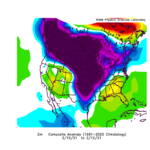Prussian military theorist Carl von Clausewitz, who was born in the 18th century and died in the 19th, participated in the Battle of Jena against Napoleon in 1806 and was involved in several campaigns leading to the French emperor’s final defeat.
He is not known for his battle prowess but rather for a book entitled On War which he described as “nothing but a duel on an extensive scale.” Von Clausewitz also wrote:
“War is a mere continuation of policy by other means.”
and,
“War is not merely a political act, but also a real political instrument, a continuation of political commerce.”
In the early 19th century the wars von Clausewitz participated in were largely clashes of armies and navies. Seldom were entire nations disrupted with thousands of bystanders killed as collateral damage.
It wasn’t until the American Civil War fought between 1861 and 1865 that the world witnessed the nearest thing to total war. That conflict forewarned us about a future of conflagrations we would see unfold in the 20th century where tens of millions of civilians became victims, genocide became an instrument of some governments’ policies, and cities and entire countries were razed to the ground. The end of the Second World War led to MAD, mutually assured destruction because of the invention of the atomic bomb.
In the 20th century, post-colonial wars were fought from Southeast Asia to Africa. Some of these became proxy wars between the two Cold War antagonists, the Western bloc led by the United States, and the Eastern led by Russia and China. We are still living with the seismic geopolitical fault lines of the 20th century exposed and in a world reconciling its European colonial past. Antagonisms continue to divide East and West, Global North and Global South, and Developed and Developing Worlds.
Are the conflicts of the 21st-century policy by other means? Before we answer that question we should note that 21st-century conflicts come in two flavours.
The first is less driven by bullets and bombs than by geoeconomics. These conflicts and confrontations reflect global rivalries between East and West, North and South, Developed and Developing and manifest themselves as trade blocs, tariffs, sanctions and occasional sabre-rattling. The expression of geoeconomic rivalry becomes visible every year at the opening of The United Nations when political leaders make their speeches in front of the General Assembly.
The second is conflicts we read about in today’s newspaper headlines. These are post-colonial wars and include:
- The ongoing wars of post-colonial Africa enveloping the Sahel region and Congo: From Mali to Somalia, wars of ideology and ethnicity fuelled by colonial boundaries that never made sense are spreading. Mali and Burkina Faso face rebel forces that are religious and ideological. In Sudan, a civil war has entered its second year. Millions have been killed and displaced. In The Congo, invading armies from neighbouring countries are vying to control the country’s rich resources and causing massive population displacement.
- The Russian-Ukraine war is a different kind of post-colonial confrontation: The Soviet Union and Imperial Russia, and before that Lithuania and Poland exerted a hold on Ukraine for almost a thousand years. The break up of the Soviet Union, however, created an opportunity for Ukrainians to declare their independence. Russia’s authoritarian regime seeks to dominate the new nation to stop it from realigning itself with Europe.
- The Israel-Hamas war is the ultimate expression of colonial policy failure: When Great Britain’s government during World War One issued the Balfour Declaration, promising a homeland for Jews in Palestine, it was still a province of the Ottoman Empire at the time. After the war, Britain was given authority over Palestine mandated by The League of Nations. Britain instituted the Declaration as a policy while at the same time providing assurances to native resident Palestinians that their rights would be recognized. The Second World War led to The Holocaust where Europe’s Jews were nearly exterminated. Post-war Palestine became a haven for Europe’s Jewish survivors. Confrontation was inevitable. Jews across the Arab World were driven from their homes with the announcement of the new Jewish state of Israel in Palestine. Equally millions of Palestinians who found themselves on the losing side of several wars fought between Israel and its Arab neighbours, lost their homes and continue to be casualties of war and occupation. The Hamas attack in October 2023 and the Israeli response have resonated across the entire Middle East and elsewhere adding fuel to overriding global geoeconomic conflicts.
These three examples described above are not the only conflicts of this century, and von Clausewitz’s invocation of war as policy by other means continues to show its ineffectiveness. Also, I’m uncertain that geoeconomic conflicts can remain nonviolent as we face the uncertainty of climate change.
Why do I say this? Climate change is altering the political and economic landscape, changing weather, causing food and freshwater scarcity, seeing ocean levels inundate island nations, and fuelling fights for increasingly scarce resources. Does this lead to a return to world wars fought for water, food, energy and other resources? Doesn’t that describe Germany and Japan’s wars of the 20th century?
Von Clausewitz saw war as policy, a means to resolve what diplomacy had failed to achieve. Hitler and the Nazis, and the militarist leadership in Japan carried out the von Clausewitz agenda.
In today’s geopolitical conflicts, however, wars have been proven to be policy failures. Wherever and whenever they are unleashed they feed greater conflagrations, like watching the forestry management policy of controlled burns go awry, turning into wildfires that consume entire forests leaving nothing for the initiator or victims.
















